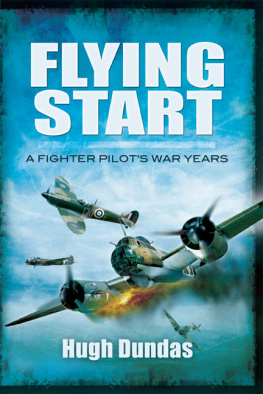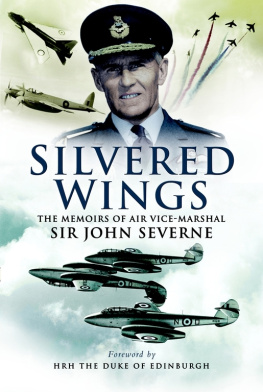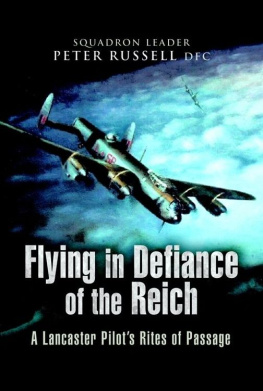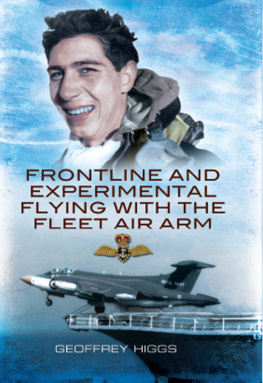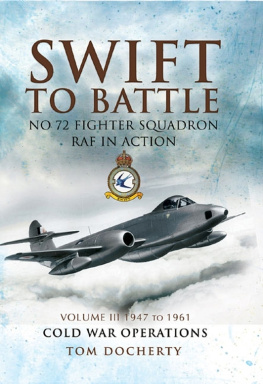Great Britain. Royal Air Force - On and off the flight deck: reflections of a naval fighter pilot in World War II
Here you can read online Great Britain. Royal Air Force - On and off the flight deck: reflections of a naval fighter pilot in World War II full text of the book (entire story) in english for free. Download pdf and epub, get meaning, cover and reviews about this ebook. City: Barnsley;Great Britain, year: 2009;2007, publisher: Pen & Sword Aviation, genre: Non-fiction. Description of the work, (preface) as well as reviews are available. Best literature library LitArk.com created for fans of good reading and offers a wide selection of genres:
Romance novel
Science fiction
Adventure
Detective
Science
History
Home and family
Prose
Art
Politics
Computer
Non-fiction
Religion
Business
Children
Humor
Choose a favorite category and find really read worthwhile books. Enjoy immersion in the world of imagination, feel the emotions of the characters or learn something new for yourself, make an fascinating discovery.
- Book:On and off the flight deck: reflections of a naval fighter pilot in World War II
- Author:
- Publisher:Pen & Sword Aviation
- Genre:
- Year:2009;2007
- City:Barnsley;Great Britain
- Rating:4 / 5
- Favourites:Add to favourites
- Your mark:
- 80
- 1
- 2
- 3
- 4
- 5
On and off the flight deck: reflections of a naval fighter pilot in World War II: summary, description and annotation
We offer to read an annotation, description, summary or preface (depends on what the author of the book "On and off the flight deck: reflections of a naval fighter pilot in World War II" wrote himself). If you haven't found the necessary information about the book — write in the comments, we will try to find it.
Great Britain. Royal Air Force: author's other books
Who wrote On and off the flight deck: reflections of a naval fighter pilot in World War II? Find out the surname, the name of the author of the book and a list of all author's works by series.
On and off the flight deck: reflections of a naval fighter pilot in World War II — read online for free the complete book (whole text) full work
Below is the text of the book, divided by pages. System saving the place of the last page read, allows you to conveniently read the book "On and off the flight deck: reflections of a naval fighter pilot in World War II" online for free, without having to search again every time where you left off. Put a bookmark, and you can go to the page where you finished reading at any time.
Font size:
Interval:
Bookmark:
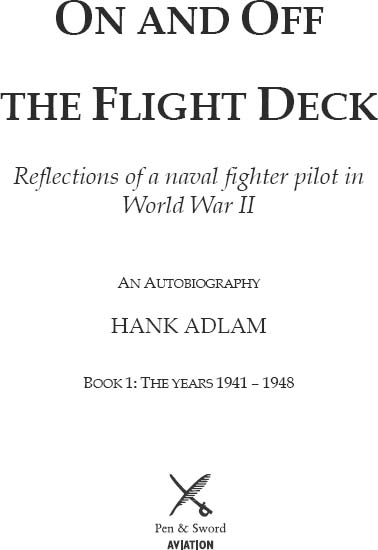
First published in Great Britain in 2007
by Pen & Sword Aviation
an imprint of
Pen & Sword Books Ltd
47 Church Street
Barnsley
South Yorkshire
S70 2AS
CopyrightHenry Amyas Adlam 2007
Maps on pages 149 and 167 copyrightAza Adlam 2007
ISBN 978 1 84415 6290
ePub ISBN 9781844683741
PRC ISBN 9781844683758
The right of Henry Amyas Adlam to be identified as Author
of this work has been asserted by him in accordance with the
Copyright, Designs and Patents Act 1988.
A CIP catalogue record for this book is
available from the British Library.
All rights reserved. No part of this book may be reproduced or transmitted in any form or by any means, electronic or mechanical including photocopying, recording or by any information storage or retrieval system, without permission from the Publisher in writing.
Illustrations scanned by 4Word, Bristol
Typeset in 10 on 12 point Palatino by
Victoria Arrowsmith-Brown, Bristol
Printed and bound in
England by CPI UK
Pen & Sword Books Ltd incorporates the imprints of Pen & Sword Aviation, Pen & Sword Maritime, Pen & Sword Military, Wharncliffe Local History, Pen & Sword Select, Pen & Sword Military Classics and Leo Cooper.
For a complete list of Pen & Sword titles please contact
PEN & SWORD BOOKS LIMITED
47 Church Street, Barnsley, South Yorkshire, S70 2AS, England
E-mail: enquiries@pen-and-sword.co.uk
Website: www.pen-and-sword.co.uk
This book is dedicated to my much loved wife and companion, Saccie, with whom I shared fifty-three happy years, and to my dear son, Jeremy, whose great pleasure was to read a book.
Would that they were both here to read this one.
This story is about my war and the worst of it was the loss of so many friends with whom I flew, and who did not have my luck to have survived. Also, therefore, this book is dedicated to them.
Mary James, who encouraged me to start writing and taught me how to write short stories good enough to be published.
Aza, my daughter, who encouraged me to keep writing, and turned out to be such a very good editor.
David Reed, who had to work hard in correcting my grammatical errors and who thought of the title for this book.
Victoria Arrowsmith-Brown, who advised me and led me by the hand through the strange world of publishers and literary agents.
Illustration | Text |
page | page |
1, 2 | |
9, 10 | |
11, 12, 13, 14 | |
My memories of the events and happenings described in this story are strong and clear, albeit that they occurred over sixty years ago now. But, although squadron diaries and log books are a help, I have to acknowledge that on the sequence of these events, their precise dates, and on some names, my memory sometimes may be at fault.
T his is my first solo at night and I am tense and nervous, as I line the aircraft up along the side of the flare path. Set the gyro compass, turn the cockpit lights right down, check the trim, select propeller at fine pitch, flaps up, plenty of fuel then slowly now, I open the throttle fully while concentrating on keeping straight alongside the flare path. Flare path indeed nothing but a line of paraffin flares set twenty yards apart and across nothing more than a large meadow at Shrewton, the satellite airfield to our aerodrome at Netheravon. Airborne now and eyes straight onto the instruments, never mind the absolute blackness outside. At eight hundred feet turn to port ninety degrees and there sure enough I see the flare path over my left shoulder. I feel more at ease in the black night now. All that remains, I tell myself, is to follow the well-known circuit procedure and to line up carefully on the final approach to land. Come on Henry, stop sweating. It's not really a problem.
On the final approach, the flare path is beginning to slide away under me to my right. Bank right and quickly left again to line up that's it. Start throttling back now, get the nose up a bit more and some right rudder the sudden stall. And I am much too high and she drops like a brick the port wing hits first full throttle and full right rudder all too late an almighty crashing and grinding sound as the aircraft scrapes over the ground with bits coming off it in all directions. Sudden silence except for a tinkling noise from the smashed engine and I am sitting strapped into the cockpit still holding the control column. Lights and figures coming towards me and shouting. I must get out quickly! I undo straps and parachute harness, scramble out on to the ground because the port wing isn't there, and stumble into the arms of friends. Except for a bruise on the right side of my head, I am in apparent good order. This is more than can be said for the Miles Master which, constructed of wood, has broken its back and left bits of itself, including the wings, all along the scraped path of its passage along the ground. There go my wings too, I thought as I had most probably just failed the flying course.
Four months earlier on 3 January 1941, I had arrived at St Vincent's barracks in Gosport to join a total of one hundred and sixteen young men, some of them boys really of age eighteen or nineteen, on the 23rd Pilots course of the Fleet Air Arm, which included an unusually high colonial intake of thirty-five New Zealanders and fourteen Canadians. The course consisted of classroom work on navigation, theory of flight, signals, information on warships and their operation but the emphasis was on square bashing and parades. It was intended obviously as a short, sharp introduction to naval life and discipline to mould a bunch of civilian boys into young men with sufficient gumption for wartime aviation. It needed to generate too, in a period of two months, an enthusiasm for the Royal Navy and a feeling of belonging to it. Sunday Divisions, when the entire barracks of four hundred men paraded in their No. 1 uniforms for inspection by the Captain and Officers with the Marine band playing, was a part of it.
It was not difficult for grammar and public schoolboys to learn new classroom subjects but, for those from grammar school accustomed to life at home, it must have been particularly difficult to adapt to the bad food, myriads of cockroaches and uncomfortable conditions. The Royal Navy appeared to be convinced too that doors to lavatories were tantamount to unsafe sex and that those grossly overloaded and filthy lavatories, as they were in the main building, would in time un-clog themselves without the aid of plumbers. Except for those unpleasant lavatories outside, I could cope with the accommodation conditions in the barracks itself since in some respects they were much better than they had been at Harrow. For example, at the end of the passage on each dormitory floor of the barracks there were two lavatories, two urinals, two showers and twelve wash-basins with hot water. Whereas, at Harrow, the nearest lavatory to the study-bedrooms had been down in the basement, four floors below, while washing facilities had consisted of a basin and jug of water with cold showers downstairs.
Learning how to integrate and get on with the other young men from commonwealth countries with such different backgrounds was an education in itself for us Brits as indeed, vice versa, it was for them. It was surprising how well we all got on together, although the very occasional fist fight did occur. I became involved in one against a Rhodesian boy, over where we sat in the classroom. He swept my books, which I had left to mark my place, on to the floor. No one could be less of an aggressive fighter than me, but I took a swing at him and knocked him so that he tripped backwards on to the floor. He came flying off the floor at me and we bashed at each other until the others, thank heavens, held us both back while I made feeble struggles to get at him again. He, on the contrary, appeared only too anxious to continue the fight and really did have to be restrained. The officer who was to teach us then appeared, whereupon the bloodthirsty New Zealanders implored the officer to declare a formal fight in the Gym. This was the Navy way of settling scores between quarrelling sailors, a bloody battle in the ring until one or the other was knocked senseless in front of a yelling crowd of sailors. The officer, very angry, told us that we were supposed to be officer material and not to act like slum children and refused any such nonsense. What a relief!
Next pageFont size:
Interval:
Bookmark:
Similar books «On and off the flight deck: reflections of a naval fighter pilot in World War II»
Look at similar books to On and off the flight deck: reflections of a naval fighter pilot in World War II. We have selected literature similar in name and meaning in the hope of providing readers with more options to find new, interesting, not yet read works.
Discussion, reviews of the book On and off the flight deck: reflections of a naval fighter pilot in World War II and just readers' own opinions. Leave your comments, write what you think about the work, its meaning or the main characters. Specify what exactly you liked and what you didn't like, and why you think so.

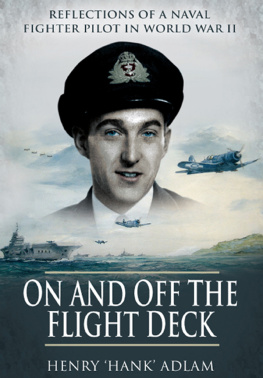
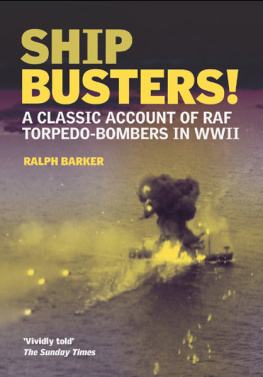
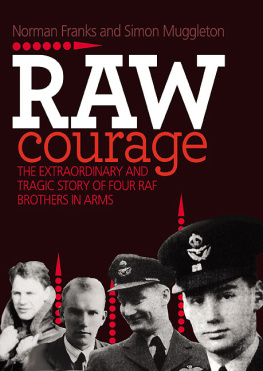
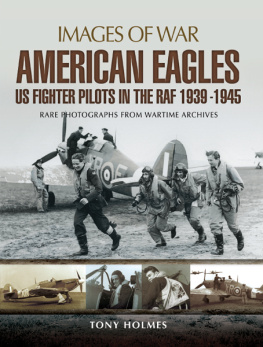
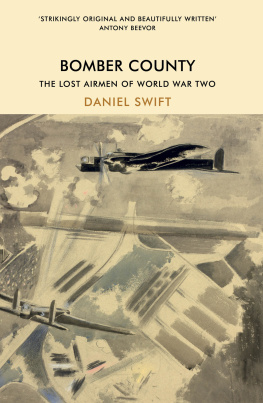
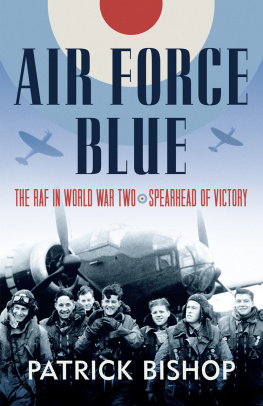
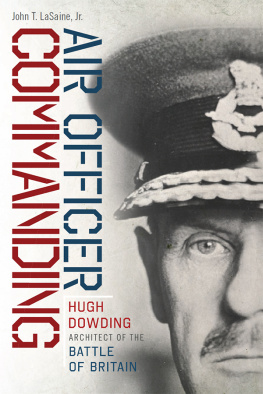

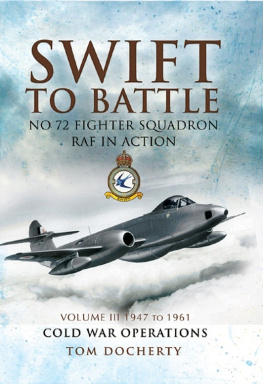

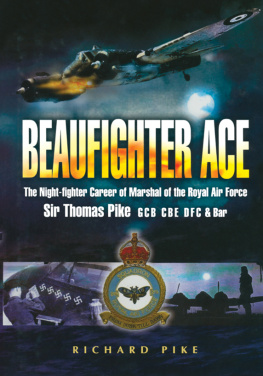

![Bar Wing Commander Guy P. Gibson VC DSO - Enemy Coast Ahead [Illustrated Edition]](/uploads/posts/book/180257/thumbs/bar-wing-commander-guy-p-gibson-vc-dso-enemy.jpg)
